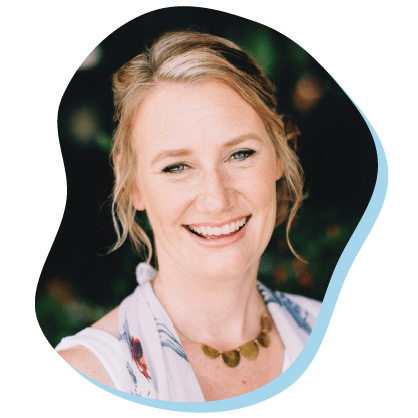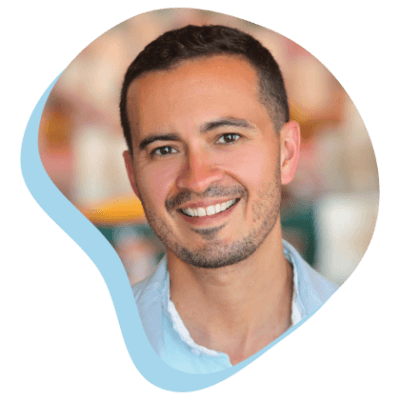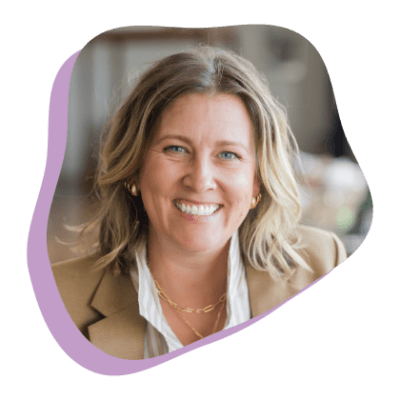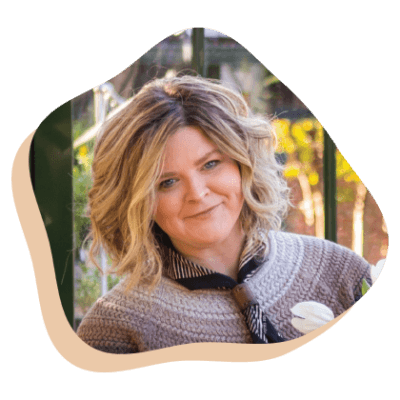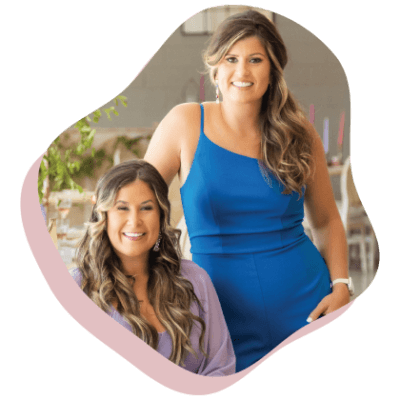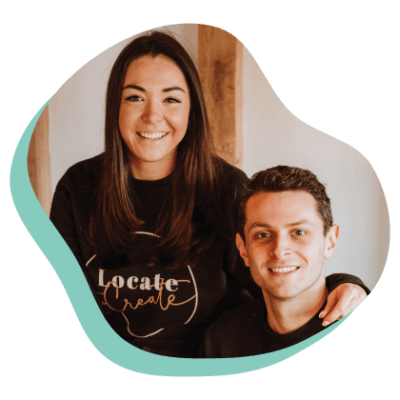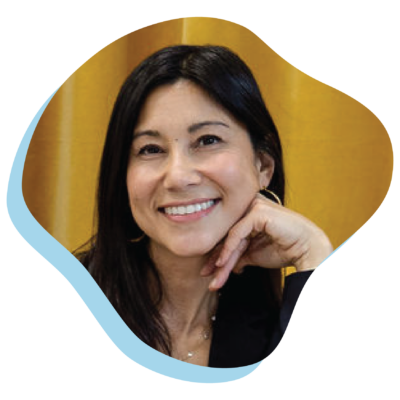Hello and welcome back to the Trunk Show. This is the official start to Season 3, and we have some great episodes coming, so follow us on your favorite podcast app. I’m your host, Allison Howell, here to talk with leading professionals about their event rental businesses, hard earned wisdom, and ongoing adventures in the industry.
The show is brought to you by RW Elephant, mighty inventory management software designed to help you conquer the chaos in your event rental business and reclaim your creativity, because the world needs more of the beautiful events and environments you create.
In this episode, you’ll hear my conversation with Pablo Oliveira, founder of Nüage Designs, a global leader in couture, linen, and furniture rentals. We chatted in front of a live audience at the last Lend & Gather conference about his origin story, how he was able to grow his business from zero to 50 employees, and what he believes are the secrets to his success.
Allison Howell: When you were growing up, what did you want to be?
Pablo Oliveira: I was torn. I always used my creative side when I was a child. I used to make my own toys with paper. Instead of having my parents buy me toys, I was like, “Can you get me cardboard and coloring pencils,” I used to make my own toys. So when I was getting ready to go to college, I was torn.
Do I want to be an architect and design beautiful spaces? I always loved languages as well and learning about different cultures. Part of me also wanted to pursue a career where I could go out and explore the world and learn different languages and move from place to place. So that was always fascinating to me.
Allison Howell: So your choices were architect or jet setter, if you’re saying.
Pablo Oliveira: Not a jet setter. So, at the time I’m talking, I’m going to give away my age, but 25, 26 years ago or 28 years ago, hospitality was something that was becoming more prominent in Brazil and tourism was having a boom. So, I was hearing about hospitality education.
So, I was like, oh, that sounds really interesting. I think I can follow my passion of exploring the world if I pursue a career in hospitality. So that’s what I decided to do. And I had very supportive parents that, whatever I decided that I wanted to do, would support me. Off I went to Europe to study hospitality, which was an amazing opportunity for me because I went to an international school, so I got to meet people from all over the world.
Allison Howell: So, when you went to hospitality school, were you thinking, I’m definitely going to work in a hotel? Or were you thinking what are the paths from there? What are the options after you finish hospitality school?
Pablo Oliveira: Sure. Now it’s very different because there’s so many aspects of hospitality that have to do with technology.
The opportunities are so vast now, but at the time, most people that went to hospitality school wanted to pursue a career in luxury hospitality, so go work for a hotel. And the Ritz Carltons and the Four Seasons of the World at the time. So that was my goal, leaving school. And that’s exactly what happened.
After I graduated from school. I was lucky to get a position with Ritz Carlton in Spain. So, I was in Spain for a year. And then after that, I moved to Santa Barbara. I was there for about a year as well with the Four Seasons, with the Biltmore. That’s when I moved to Miami.
So this was in 2000 when I moved here. Boutique hotels were something that were just like taking off. And there was the Delano here in Miami, which everyone like people used to say this is, “Oh, it’s Madonna’s hotel.” Madonna never had a stake.
Allison Howell: But somehow she got the reputation for it.
Pablo Oliveira: It just made it sexy, and at the time Miami was a place where there was a lot of photo shoots happening, a lot of modeling. And it was just like a very sexy destination. So I ended up here and I was working for a boutique hotel company owned by Chris Blackwell, who is the founder of Island Records. So he’s the guy that discovered U2 and Grace Jones.
Allison Howell: He’s kind of a big deal.
Pablo Oliveira: A big deal. Yeah.
Allison Howell: Wow. So all of those opportunities stemmed from your experience in school and the connections you made there.
Pablo Oliveira: Yeah, so the cool thing about going to an international hospitality school is that obviously you make friends from all over the world and then there’s obviously opportunities that come up from working, especially if you go work for this international chain.
I thought I was on a good path to a successful career in hospitality, and I did a little bit of everything. I was in food and beverage. My last job in hospitality was in sales. So I thought that I was putting a lot of experience under my belt. And I was off to being the general manager of a hotel one day.
Allison Howell: Sure. So what were some of those characteristics or skills that you learned in hospitality school or honed at least in hospitality school that you feel like carried you through that early part of your career.
Pablo Oliveira: That really gave me the foundation, the customer service foundation, which is probably the most valuable thing that I bring from hospitality to my business, because a hotel, if you think about it, is the epitome of customer service, right?
Every single interaction that you have at a hotel is an opportunity to create a memorable experience with a guest.
Allison Howell: So you went to school, you started working in hotels, you came to Miami. What happened next?
Pablo Oliveira: 9/11. And as you may recall, travel and tourism was heavily impacted. Everyone was scared of traveling.
So the hospitality industry took a big hit and we had a recession at the time. I soon lost my job. Deep inside my mind, I was like, I think I want to start a business. I just didn’t know what at the time. I had a friend from school and she was also in luxury hospitality. She worked for the Four Seasons around the same time that I did.
And one day she had enough and she quit her job. She went back home, started to. Supply textile goods to resorts, using the connections that she had from school and somehow she met someone in New York. Okay. That was an event rental company who at the time, I’m talking 2000 and, early 2000.
That company was the first company to really offer linens similar to what we have today.
Allison Howell: So you’re saying something that wasn’t polyester.
Pablo Oliveira: Something that was not polyester. Yes. Something that had embroidery and beaded. So she was really in the forefront. She reached out to me one day and she said, “Oh you’re in Miami. I started this business and I have a client who is buying tablecloths, right? I’m making tablecloths for her and those tablecloths are being used for events. I think she has some clients in mind. She’s sending her product to Miami. So is that something you want to partner with me and explore to see if there’s a market in Florida?”
Cause I believe there’s like lots of weddings happening there. And I’m like, “You’re doing what, you’re doing tablecloths for weddings?” Like in my mind, I had no idea, 20 years ago, what she was talking about.
Allison Howell: It was a different world from the one you were in, adjacent to hospitality, but still not the one you were in yet.
Pablo Oliveira: Yeah. So we had that conversation. And then shortly after that I lost my job and I called her up and I was like, “Hey, you know what? That idea you were proposing to me. Of those tablecloths. Let me take a look at them.” So I then went to visit my friend. I saw the product and I was like, really surprised.
I had no idea that such a thing even existed. Immediately told her, you know what, let me, I think we can do this. I came back to Florida, started knocking on some doors. At that time I had absolutely no idea even where to go to show the product. So I did some research. I called some rental companies and I packed up a suitcase of samples and I went to see them. I started showing my product and obviously the first reaction was, “How many times can you wash this? It’s pretty but how many times can you wash this?” I’m like, “I don’t know. I’m guessing at least two or three times” and the answer that I would get was “We have this linen here that we’ve been washing for ten years.” Obviously, there was a little bit of a disconnect between the products that I was trying to sell and what the rental companies were looking for.
But I started shooting in all directions to see what would stick. I used my connection, so I went to see some of the hotel people that I knew here. And they would point me to certain event designers that would, regardless whether it was available for rental or not, they would buy the product. So then that’s like how I got started, in getting people’s attention, so I went directly to the designers.
And they would love the products and then most of them would say, “Oh, I love this, but I don’t buy. I’m just interested in renting.” So then I would go to the rental companies and they would go like, “Oh, it’s pretty, but I can’t really wash this as many times as I would like to.” So we’re in that back-and-forth for about a year until my friend said, “You know what? I’m sorry. I got you into this business. I don’t think it’s going very far. I think I’m going to go to business school. So if you want to just stick to when you can but I’m out.”
Allison Howell: Is she sad she made that decision now? At the time she just didn’t know.
Pablo Oliveira: Yeah at the time she didn’t know so one thing that I had observed from having sold some product to some of the rental companies is, let’s say we would sell this linen to you for $90, you would then rent as a rental company to your client. Your first rental would be the same price that you purchased for.
In my mind, I was like, “You know what? I think to have better control of this product in the event industry, I better just become a rental company because for my wholesale price, someone is renting for the same price.” And that’s what got me into the rental side of it without knowing, of course, that I would need a warehouse, that I would need delivery trucks, that I would need anything.
Allison Howell: So like you said, “Okay, I’m going to start renting these.” You had these event designers and you said, “Sure, I’ll rent it to you.” What was that like? You were like, “Okay, I need 20 of these linens for this event.” And then you went to the hotel and picked them up and thought, “How do I clean them?”
Pablo Oliveira: So kind of… right in the beginning, I had zero inventory, right?
All I had was my little suitcase with beautiful samples that I schlepped around and knocked on doors and I showed to everyone hoping that every time I made something and would have it in inventory, then we would be able to rent it again.
I got into this without having any prior experience in events or having any knowledge in textiles.I found myself in a situation where I had to learn pretty quickly every aspect of the business.
I have a funny story. After my first rental, I had the linens picked up and I actually called up this person that I knew from my hotel days that had a laundry. So he would do outsourced laundry for hotels.
So I told him, “Hey, I opened my own business. I’m doing linen rental. So I have some business for you. I have a load of linens for you to wash.” So he said, “Oh, great. Congratulations.” I said, “Can you please come pick it up?” And he said, “Sure, give me the address.” So he showed up and he called my cell phone and said, “I think I have the wrong address because I’m outside of public storage.”
And I’m like, “No, you’re in the right place.” (laughter)
So my first storage space was a 10’ by 10’ in a public storage. That’s how the business got off the ground. When I had the money to rent a small warehouse, I rented a warehouse. Very soon, I couldn’t just rely on product that was being made overseas to be shipped to me already made.
I had to get my own sewing capability locally, and that got started because I delivered some product to a client. And then they called me up and said, “Listen, the linens you just delivered, the seams are bursting, they need to be fixed. Either you give us a discount or you have to get them fixed.”
So I went to pick up the linens. Honestly, I asked the production manager for this big company. I said, “Do you know who can fix this for me?” She said, “Sure. I have the contact of this sewing lady. She used to work here, so feel free to contact her. And I think she will just fix the linens for you.”
So sure enough, her name was Matilda. I called Matilda, and showed up at her little two bedroom house in Wynwood, which nowadays is like the hottest neighborhood in Miami. But back then it was… Coincidentally, the fabric store, like the main event fabric store, was just two blocks down. So I would go pick up the fabrics there and then bring them to Matilda.
Matilda was like love at first sight. I brought the linens for her to fix for this first order that I had with this big client. Everything was like, “No problem. I’ll help you with that.” So she was my first employee for, I would say the first six months or six months to a year. My first year in business.
Her little two bedroom house was my sewing facility. The cutting room was her bed. She would unroll the fabric rolls, do all the cutting on her bed. And then bring them to the tiny little dining table where she had the sewing machine. She had a little dog that was covered in thread from all the cutting and all the sewing.
That was basically how I got my sewing production started, out of her little house. I then went to meet all the main designers in town and something really extraordinary happened. They all got excited with the product, the new product that I was offering that nobody else had. At the time, Grace Ormonde was the main wedding magazine right out there.
I started getting all these calls from this client saying, “Hey, there’s going to be a photo shoot in town and we need linens from you.” One day my phone rang and I picked up the phone and it’s Grace Ormonde. And I’m like, “You’re Grace Ormonde?” And she said, “Yes. And I’m coming to Miami and all the designers that are doing photo shoots are mentioning your name. And they all told me that I have to get in touch with you.”
You have to keep in mind, this is pre Instagram, pre Facebook, pre everything.
Allison Howell: People barely have websites at this point.
Pablo Oliveira: Exactly. That was definitely instrumental for my business at the time to be featured in a magazine and to get national exposure because the magazine was a national magazine. So things started happening pretty quickly.
Allison Howell: So was that scary at all for you thinking about creating a product for such a small market?
Pablo Oliveira: I knew that it wasn’t a mass product and I knew exactly what kind of designer, planner I had to go after to offer my products.
So in that sense, yes, I knew that at that point I was a very niche business. It wasn’t necessarily for every single wedding.
Allison Howell: But you knew there was enough of that business in Miami or you already knew, “Oh, Miami is too small of a market. I’m going to have to go beyond just Miami.”
Pablo Oliveira: I don’t think that I strategize like that.
I just took it day by day and just grabbed every opportunity that was presented to me and met every single designer that referred me to another one. It was just like, yeah. One thing leading to the other, and before I know, we weren’t just doing business here in Miami, we started shipping, so all these things happened very organically, and it wasn’t necessarily planned, or strategized, or premeditated.
Allison Howell: Tell us what is in your collection today. What do you rent?
Pablo Oliveira: Our primary product is still linens, simply because we can put them in a box and ship them across the country and even across the world. We’ve done business in different countries.
Allison Howell: And when you say linens, you mean tablecloths and napkins.
Pablo Oliveira: Tablecloths, napkins, runners, pillows, those are the products that we can ship. And then on a more local basis, even though we do out-of-state as well, we do the furniture. So we have a warehouse here in Miami and we have a warehouse in Chicago, but we’ve taken furniture as far as Montana. We just got two containers back from Anguilla from the Chicago warehouse.
Last year, for example, we went to Ohio, Indiana, we went to Cape Cod, all the neighboring states in the Midwest.
Allison Howell: I don’t usually think of Cape Cod as neighboring Chicago.
Pablo Oliveira: It’s not, but it just happened that one of our good clients in Chicago was doing an event in Cape Cod. So why not bring chairs?
Allison Howell: Why not? Why not? So take us back a little bit. You got in a warehouse and you have someone who’s doing the sewing for you. What are some of the challenges that you experienced as you started to grow? Cause it sounds like the Grace Ormonde shoot really propelled your popularity, then what happens?
Pablo Oliveira: Even though things happened rather quickly for me at the time, it still gave me the time to, with a small team, to be able to deliver our product and keep growing year over year. Matilda was my first employee and she quickly built a little team of nine to ten seamstresses that were in charge of production.
Allison Howell: That doesn’t sound like a little team to me, Pablo. It sounds like a big team.
Pablo Oliveira: Yeah. So I was 26 years old when I started this business. So they, in a way, like they were taking care of me, just like I was their child.
I remember actually one day, I got to the warehouse, our first little warehouse, and one of the seamstresses was driving to work, and she had a station wagon, and she saw a washing machine outside on the curb, and she picked up and she brought to work, and she was like, “Oh, I have a gift for you, we have a new washing machine.”
So there was a lot of that. I didn’t see them as staff. It was really like a little family. Matilda retired a few years ago, but a lot of the seamstresses that I have today, they date back 17 to 18 years ago.
But I needed to hire more people. One of the things that I realized was the opportunity to be able to do more business out-of-state and to be able to ship so quickly, I started adding a sales team at key locations where I thought I could do more business just because they couldn’t network locally and everything can ship from here. So that was a natural kind of progression of the business.
Allison Howell: So where were some of those key locations that you put sales teams?
Pablo Oliveira: New York and Atlanta were the first ones. Okay. Atlanta, for example, the way that it worked was there was this girl, she had a magazine, she wanted to sell me advertising. So she came to me and she said, “I have this great magazine, and I’ve seen you in Grace Ormonde. Why don’t you come over and do some advertising with me? I guarantee you’re going to get so much business in Atlanta.”
And I said, “I think it’s a great idea, but I don’t have anybody there to answer the calls from the local clients. Why don’t we do this? Find me a salesperson in Atlanta and I’ll advertise in your magazine.”
Allison Howell: Wow, that’s a big ask.
Pablo Oliveira: Yeah, so the following day, she forwarded me a resume.
Allison Howell: For herself?
Pablo Oliveira: No from someone that she knew was in town looking for a job. She sent me that resume. And she said, “Here it is. I found you a salesperson. So if it works out with this girl, you have to advertise in my magazine.”
I go, “Okay, let me at least interview her first.” We had a nice chat on the phone. I flew her into Miami. Next thing you know, she’s hired. She’ll be a salesperson in Atlanta. And I advertised in that person’s magazine. Eleanor joined Nüage 10 years ago and she’s our Director of Sales now.
A lot of the people that are working at Nüage were referrals or there was some sort of relationship with a client.
Allison Howell: It seems like that’s a real key to scaling is hiring the right people. So obviously moments like that seem serendipitous in a certain way, but have there been any strategies you’ve employed to find those people or tricks or tips? Like how else have you found great people to join your team?
Pablo Oliveira: To be honest, I think that referrals have been the best way for us to find the right talent, especially because I think that someone that is already working with us, they want to have the best people joining the company.
So now we have a referral rewards program at the company. If we’re looking for any positions, whether it’s warehouse or whatever it is, then we reward the employee that has referred someone, provided that person passes 90 days with the company. So we do that. We ask our clients a lot for referral because again, it’s true, they are advantaged that our team is the best.
At least two people, two of our sales team, have been referred by clients.
Allison Howell: Okay. Once you’ve got that referral, or once you brought that person on, you mentioned Matilda, you mentioned Eleanor, you mentioned the fact that this is a family that you’re building.
But I’ve seen a lot of entrepreneurs who think of their employees as family or as friends and end up not being very good bosses as a result, but it seems like you’ve been able to maintain the role as leader in your business, but also treat your people well. How do you think you’ve been able to accomplish that?
Pablo Oliveira: I think the magic really happens when there people believe in your passion and become as passionate as you are for the business and they take ownership in everything that they do. And every day that they come to work, I think that’s when the magic happens. I’m just fortunate that I’ve found those people.
I don’t know if it’s by accident or if I think like the energy that you send out in the world comes back to you in some shape or form, but at least for me, I think that treating them the way that I treat them I get that 10 times back.
Allison Howell: You were pretty young when you started your business. And obviously you’d had some bosses. Do you feel like you patterned yourself after people you worked for or how did you learn to manage?
Pablo Oliveira: I had a very short career before I opened this business. Yeah. I guess I have to thank Mom and Dad, and my family for it. I think it’s more about who I am than previous role models or bosses.
Allison Howell: Okay. Yeah. I think that’s fantastic because I know a lot of wonderful people who are terrible bosses, because I think it’s an acquired skill. I’m not sure you’re giving yourself enough credit for the skill you’ve developed there.
Pablo Oliveira: I think that being a boss requires learning every day from your employees.
I am typically someone that doesn’t like confrontation. Okay. And sometimes if there is one big mistake that I make constantly, I never learn from it. Sometimes I avoid having a very honest conversation with an employee just to avoid an uncomfortable situation. I’m not very good at it, but I don’t think that’s something that has a significant impact on my business.
Allison Howell: Tell us a little bit more about your strategies for growth. So you talked about growth being fairly organic at first, but at some point you started to scale pretty quickly, right? So you went from a 10’ by 10’ storage unit and now you have…?
Pablo Oliveira: Close to 50,000 square feet.
Allison Howell: Yeah that’s a little bit bigger than 10’ by 10’.
Pablo Oliveira: It is a little bigger.
Allison Howell: And you were telling me the other day about your ceiling height. I think that’s a little higher than most people in the event industry. Tell us your ceiling height too.
Pablo Oliveira: 34 feet.
Allison Howell: 34 feet ceiling. So you’ve got a lot of space there. Tell us about some of the strategies you use to get to where you are right now.
Pablo Oliveira: The event industry evolves so quickly nowadays, it’s almost like we have to reinvent ourselves and make sure that we stay afloat. I want to say a lot of it was organic, but then also when I started, when I realized the potential that I had with placing salespeople across the country, that allowed us to grow exponentially compared to just doing business locally.
That comes with inventory requirements in having the ability to ship, because even if you can say, oh, you can just put it in a box and ship across the country. It takes a lot more effort than just that, right? I think that to go from point A to point B, which is where I am, where we are today.
Allison Howell: I think you’re more like point Q, maybe R or T. It’s further along.
Pablo Oliveira: I like to say that we are a very large, small company because I think we’re still a small company. We’re a boutique company. We have about 50 employees right now, which compared to other rental companies, that’s still small, but big. I think one of my biggest struggles when I went from that beginning stage to starting to scale the business was really to let go and not be what David described as a control freak, because I really thought for the longest time, I want to be involved in every single thing and I have to, especially whatever had to do with the creative side of the business. I had to be in control, right? So I was that person for a very long time. So unless you let go of that and you really accept, you open yourself up to the idea that you have to surround yourself with talented people that can just take over. That’s where things really start to change.
Allison Howell: So what was that turning point for you? Because, I’ve seen entrepreneurs experience that tension and not be able to let go and not be able to do that scaling. So what do you think it was that enabled you to let go?
Pablo Oliveira: Sure. I think it took having some of the right people join my team. I had someone come on board as Director of Operations. I come more from the creative side of the business, not so much the operational and logistic side of the business. So it was a big relief for me to have someone that could just handle that side of it. And that person had experience in recruiting and quality processes and a lot of that. Knowing that I can trust that person to handle all that aspect of the business was definitely key.
And when I thought that I had someone in my sales team that could step up and be a Director of Sales, then I’m completely hands-off that aspect of my business. So I think it takes coming across the right people or looking for the right people that you can trust and trust to do the job for you.
Allison Howell: Sure. So you feel like they just were able to internalize your own standards and embody those? Or did you feel like you had to teach what was important to you before they could take those things on?
Pablo Oliveira: No, I think that what was important for me was just to give them guidelines and what the ultimate goal was. And then I just let them take it away from me.
Allison Howell: That’s very brave. I feel like it takes a lot of courage to be an entrepreneur. You have to start and risk failing and then after you’ve worked so hard, you have to let go in order for it to grow. I don’t know, which is harder, but that part takes a lot of courage too.
Pablo Oliveira: It does. One lesson that I’ve learned, especially in the past couple of years, is that when there are hardworking people as passionate as you are about the business, once they’re given the opportunity and the responsibility, they really step up to the opportunity and they really show their full capability.
I had this one kid who literally arrived in Miami without speaking a word of English. And four years ago, he was literally counting every single napkin that was coming back from the events. He was in the loading dock, doing the receiving, learning English. Today, he’s our Operations Manager. He’s overseeing over 40 employees. So I think this is one of the most fulfilling things for me as a business owner, is to see someone that started, doing something as simple as that, which is as important as anything else in the company because we rely on the accuracy of what comes back. Now, he’s basically training every single employee in the company.
Allison Howell: The biggest impact that we have as business owners is really on the people who work for us.
Pablo Oliveira: We built this company with the principle of doing everything for our customers, and I think that’s something that allowed us to build the relationships that we have with our customers and they trust us wholeheartedly.
A lot of our clients work with very high profile clients and they have no choice but to work with people, with vendors that are going to come through no matter what for them.
Allison Howell: I feel like renting linens and renting furniture is really different. Do you agree or am I missing something?
Pablo Oliveira: I agree. Yes, I almost treat it as two different businesses. Our clients come to us, they like the fact that it’s a… I can’t say we are a one-stop shop, but they can…
Allison Howell: They can get a lot more under one roof.
Pablo Oliveira: A lot under one roof, which consequently helps the delivery, and their loading schedule and all of that. But it’s very much two different businesses, in my opinion.
I made all the mistakes that I’m sure everyone makes in getting the wrong furniture that didn’t last past the first event because it was wood and it wasn’t rustic. It was smooth and it got scratched immediately. So yeah, I made a lot of mistakes in the beginning.
Allison Howell: I don’t remember now, but did you start furniture in Miami and Chicago simultaneously?
Pablo Oliveira: No. So we did Miami first.
Allison Howell: Okay.
Pablo Oliveira: For a brief second, I did New York, but I got tired of getting parking tickets, but I’ve been in Miami for almost as long as I’ve been doing the linens. Like I said, my primary focus is still linens.
We do a good amount of furniture here too. Chicago is something that came up about three years ago. It was an impulsive idea in the sense that we had a really good client in Chicago who kept insisting for me to open there because there was a void in the market.
So he insisted so much that I said, yes. He said, “If you open here, I promise you, we will fully support your business. We do 10 to 15 events a week. We will rent as much as we can from you.” So I was like, okay, I guess I’m at least like halfway there in making this work.
But we had a really good start. But I don’t think that it’s an ideal situation to have a second location that far from your original location. It makes the logistics very challenging. If you’re going to be counting on transfer of inventory, it’s very costly. It’s more difficult. So I can’t say that it’s a benchmark in having a second location.
Allison Howell: What do you enjoy most about your rental adventure?
Pablo Oliveira: Really creating a memorable experience. I don’t know you guys, but I had doubts about the existence of this industry, because in the middle of a pandemic, people are losing their lives and their livelihoods and all of that.
And we kept hearing, the word essential, and we all had to close. If you’re not an essential business, then you have to close. That’s something that really bothered me to even think that what I was doing wasn’t essential enough to even be allowed to be open. I really struggled with that. I was like for 17 years I’ve been building this business and all of a sudden, I’m not essential.
We were making masks during the pandemic, I had a sewing team and I had fabric. So we started making masks. One of the delivery drivers was helping. I set up like this whole production line to make masks.
So he came up to me and he said, “Can I ask for a favor? It’s my daughter’s second birthday on Saturday. I wanted to ask to borrow a table and a pretty tablecloth and something so we can just cut her cake. To have the photo.” And I’m like, “Sure.”
Later that night I went to bed and I was thinking about that guy, that delivery driver. He had been laid off almost right because he was just coming to help with making masks and everything. So here’s someone that has basically lost his job and doesn’t know what the future holds and we’re in the middle of a pandemic and he’s asking me for a pretty table and a linen and a few things to make the daughter’s birthday pretty and it stuck in my mind. I am freaking essential. Or we are freaking essential because, what is life if we don’t make memories, right? Without that what’s life, right?
I didn’t quite understand the scope of what we do as an industry until I got married. I didn’t quite understand, what’s the fuss about choosing between this table and that table. Just pick one damn it. Until I got married and I had to go through the whole process. So I think we don’t give the value that we deserve to ourselves sometimes, so just think about that.
Allison Howell: Thank you so much.
Pablo Oliveira: Thank you.
A big thank you to Pablo Oliveira and Nüage Designs. And thank you for listening to The Trunk Show brought to you by RW Elephant. Season three has just begun and we have so much to share. We’ll be releasing episodes every other week, so be sure to follow us on your favorite podcast app. As always, I’m your host, Alison Howell. Happy renting!
